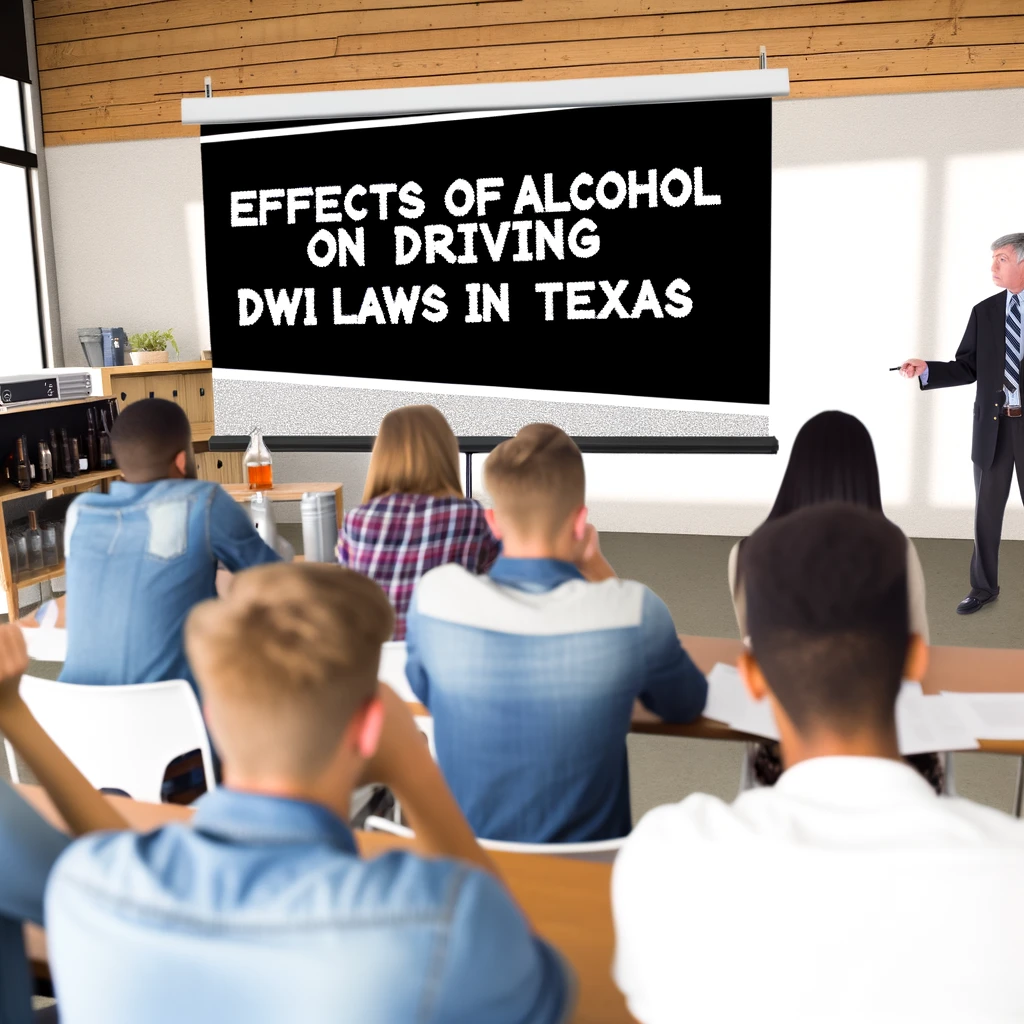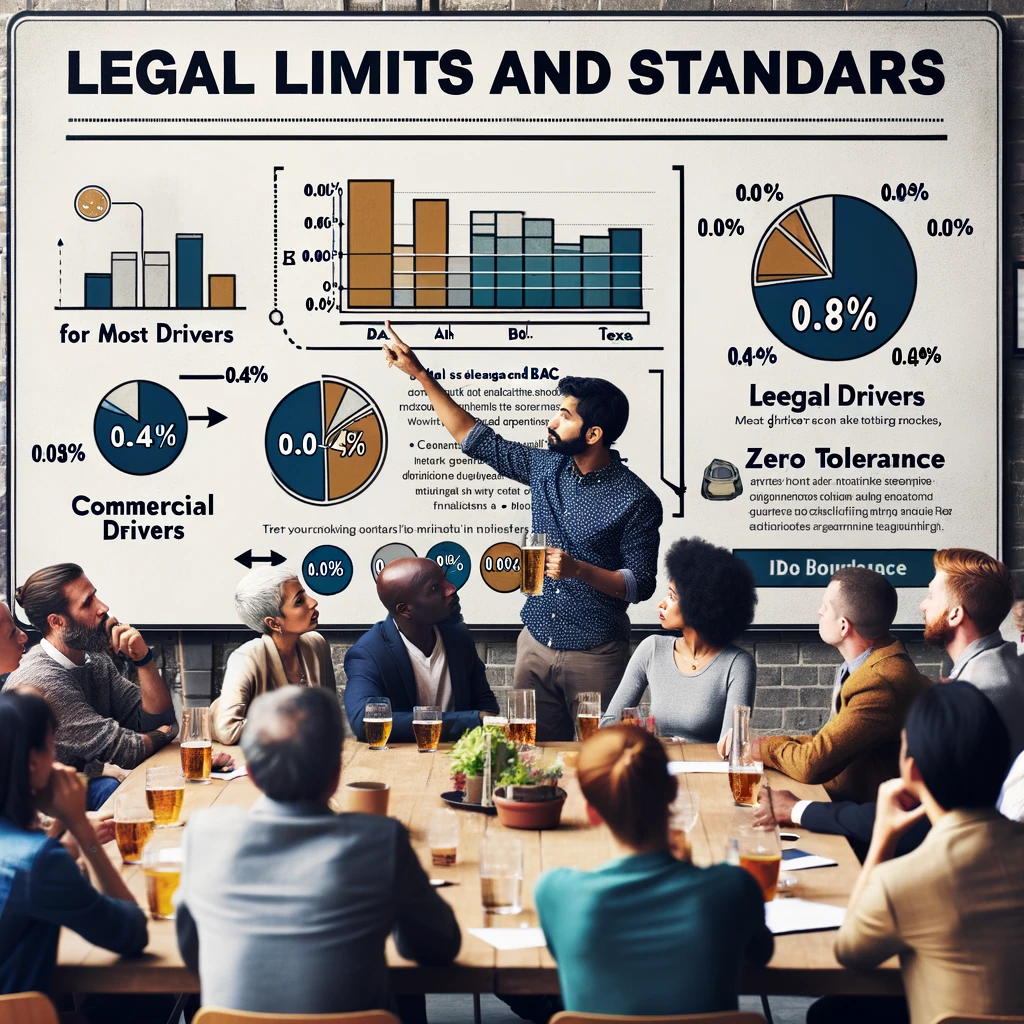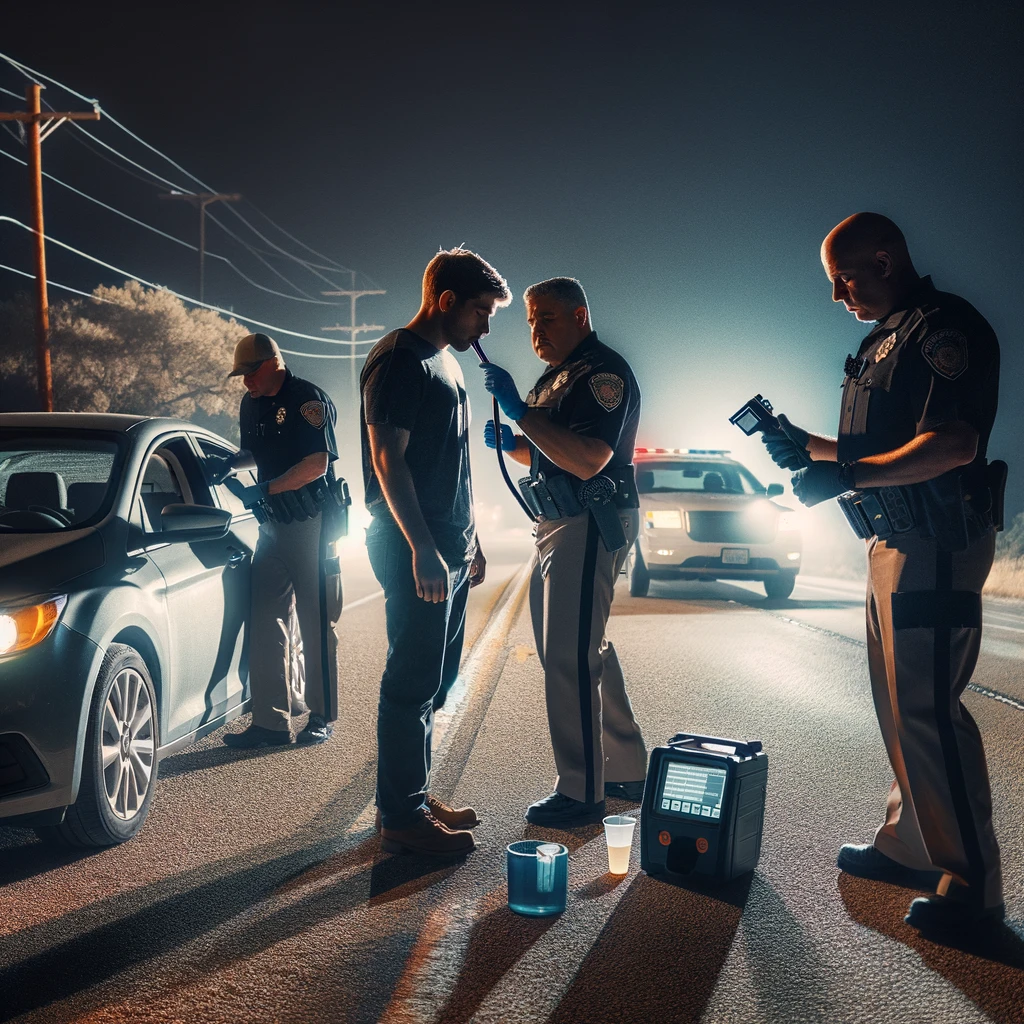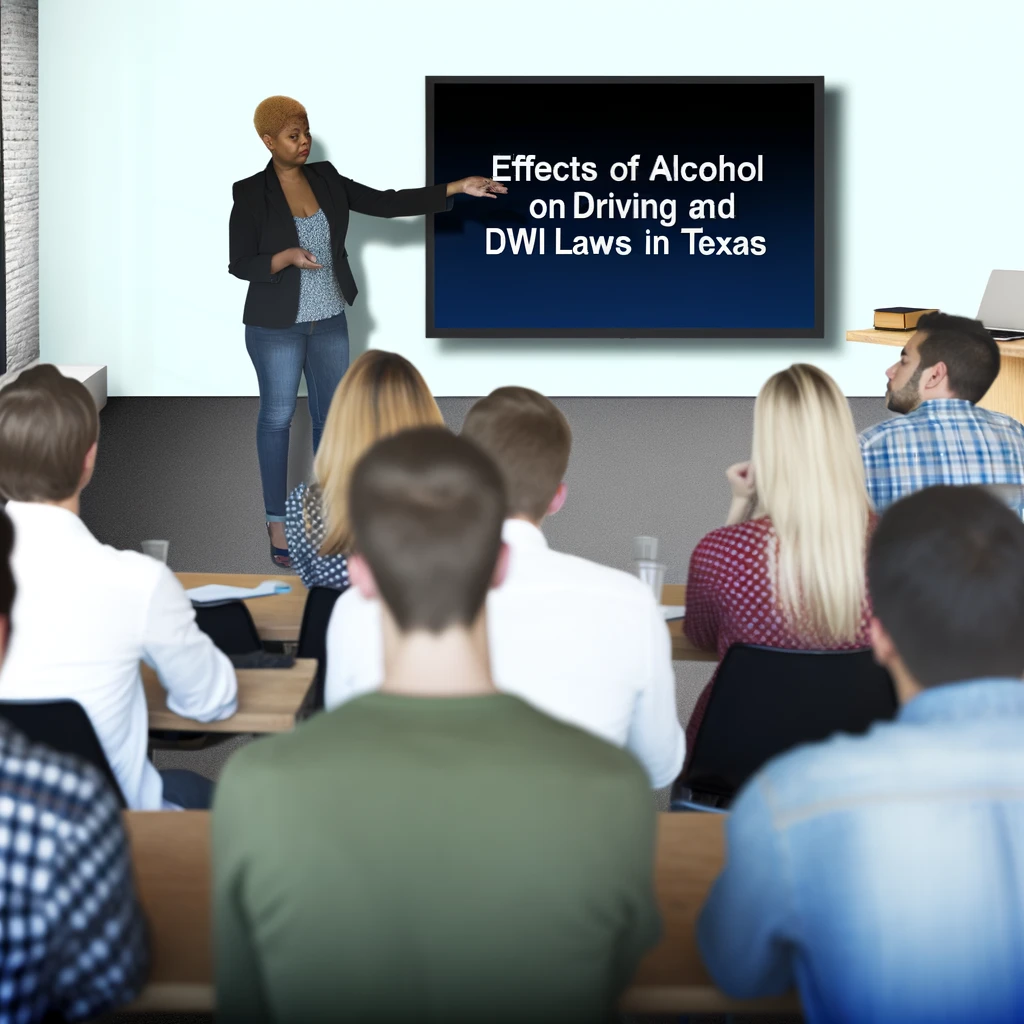
In Texas, understanding the effects of alcohol on driving and DWI laws is essential for all drivers. Alcohol impairs more than just your judgment; it alters reaction times and coordination. Even a small amount can be dangerous. Let’s explore how alcohol affects our driving skills and the legal implications.
Alcohol Impairment
Picture this: You’re at a Texas BBQ, laughter in the air, music playing softly in the background. You’re having the time of your life, sipping on your second, maybe third, drink. Then, you decide it’s time to head home. But wait, have you considered how those drinks might affect your driving?
Let me take you on a journey through the not-so-fun side of drinking and driving, specifically diving into the effects of alcohol on driving and DWI lawsin Texas. It’s a wild ride, from understanding how even a little buzz can turn your world upside down, to navigating the maze that is DWI laws in the Lone Star State.
So, why should you keep reading about the effects of alcohol on driving and DWI laws?
Well, not only will you find entertaining tales and maybe learn a thing or two about your own limits, but you’ll also get a front-row seat to the legal rollercoaster that awaits if those flashing lights appear in your rearview mirror.
The short answer? Drinking and driving in Texas? Not a great mix. Stick around to find out why!
The Impact of Alcohol on Driving Abilities
When alcohol enters your system, it reduces your ability to see clearly and make quick decisions. Coordination becomes difficult, making it hard to operate a vehicle safely. Each year, Texas sees many accidents due to impaired driving. It’s clear: alcohol and driving don’t mix.

Legal Limits and Standards
The legal BAC limit in Texas is 0.08% for most drivers. However, commercial drivers have a limit of 0.04%. Minors should have no detectable alcohol. These laws aim to keep our roads safe. But why a limit of 0.08%? Science shows that most people are significantly impaired by this point.
| Driver Category | Legal BAC Limit |
| Adult Drivers | 0.08% |
| Commercial Drivers | 0.04% |
| Minors (Under 21) | Zero Tolerance |
Overview of DWI Laws
Texas takes DWI offenses seriously. Penalties range from fines to jail time. Even first-time offenders can face severe consequences. The law is strict because the risks are high. Repeat offenders face even stiffer penalties, emphasizing the state’s no-tolerance stance on drunk driving.
Case Studies and Statistics
Consider John, a Texas resident whose life changed after one night of drinking. His story is a stark reminder of the consequences of drunk driving. Texas statistics echo this narrative, with thousands affected annually. These are not just numbers; they represent real people and shattered lives.
Testing and Enforcement Techniques
Texas law enforcement uses breathalyzers and field sobriety tests to detect alcohol impairment. Refusing a breathalyzer can lead to automatic license suspension. This policy is part of Texas’s effort to deter drunk driving. But how accurate are these tests? While not perfect, they provide crucial evidence in DWI cases.

Prevention Strategies and Public Awareness
Texas has launched campaigns to educate the public about the dangers of drunk driving. Schools, community groups, and local agencies work together. The message is clear: Plan ahead. Don’t drink and drive. Public awareness can save lives.
Alcohol Addiction and Rehabilitation
Many DWI offenders struggle with alcohol addiction. Recognizing this, Texas offers rehabilitation programs. These services provide help and hope. They aim to address the root problem, not just the symptoms. Recovery is a challenging journey but a vital one.
Legal Rights and Representation
If charged with DWI, understanding your legal rights is crucial. In Texas, DWI laws are complex. A skilled attorney can navigate these waters. They can provide advice, represent you in court, and advocate on your behalf. Never underestimate the importance of legal representation.

Global Perspectives
Comparing Texas DWI laws with those of other countries can be enlightening. Some nations have zero-tolerance policies, while others focus more on rehabilitation. What works best? There’s no easy answer, but the global perspective provides valuable insights.
Impact on Victims and Families
The true cost of drunk driving is measured in lives changed and dreams destroyed. Families suffer when loved ones are lost or injured. Texas law allows victims to seek justice and compensation. Yet, no amount of money can replace a lost life or heal all wounds.
Alternative Transportation Options
With today’s technology, there’s no excuse for drunk driving. Taxis, ride-sharing apps, and public transport offer safe alternatives. In Texas, many communities also offer free ride services on holidays. Make a plan before you drink.
Technological Solutions
Ignition interlock devices prevent a car from starting if alcohol is detected. Texas mandates these devices for certain offenders. They’re a powerful tool in preventing repeat offenses. Additionally, apps can monitor alcohol levels and suggest safe transportation options.

The Role of Bars and Restaurants
Texas law holds bars and restaurants accountable for over-serving patrons. Staff training programs emphasize the importance of responsible service. These efforts aim to prevent drunk driving at its source. It’s a shared responsibility.
The Call to Action
The effects of alcohol on driving and DWI laws in Texas are clear. The risks are too high to ignore. We must all do our part. Choose to drive sober, or plan another way home. Together, we can reduce the toll of drunk driving in our state. Let’s make Texas roads safer for everyone.

And here we are, at the end of our Texas-size journey
Through the maze of cocktails and car keys. Have you ever thought about what makes a memorable night? Is it the clinking glasses, the dance moves, or getting home safe to your cozy bed? Let’s choose the latter, folks.
Remember our friend from the introduction, enjoying the BBQ under the Texan stars? Let’s make sure our story always ends with a safe ride home. No one wants their night to end with flashing red and blue lights, or worse, a tragedy.
Here’s the takeaway on the effects of alcohol on driving and DWI laws in Texas
Mixing alcohol and steering wheels in Texas is like trying to mix oil and water – it just doesn’t work. Keep it simple. Sip responsibly, dance wildly, and then hitch a ride with a sober friend or that magical modern carriage, the ride-share app.
Short answer? Drinking and driving don’t mix, especially in Texas. Keep the party fun, and the roads safe. Let’s promise to make smarter choices and look out for each other. Cheers to that, y’all!

Other Related Articles:
- DUI and DWI: The Alcohol Marijuana Dilemma
- Navigating DWI: Texas Laws on Marijuana and Alcohol
- Alcohol Laws and Regulations in Texas
- Navigating Texas DUI Laws on Alcohol and Marijuana
- Understanding DWI Laws in Texas: A Closer Look
- DUI vs. DWI: What’s the Difference?
- The ABC’s of DWIs in Texas
- Texas’s Zero Tolerance Laws for Underage Drinking and Driving
- The Making of Bentley’s Law
- Pouring Responsibility: Understanding the Texas Dram Shop Act
Frequently Asked Questions:
The consequences can include fines, jail time, license suspension, and mandatory education programs.
Consequences include legal penalties, increased insurance rates, potential job loss, and personal injury.
In Texas, DWI (Driving While Intoxicated) can be considered more severe than DUI (Driving Under the Influence).
Yes, but usually under strict conditions such as the installation of an ignition interlock device on your vehicle.



